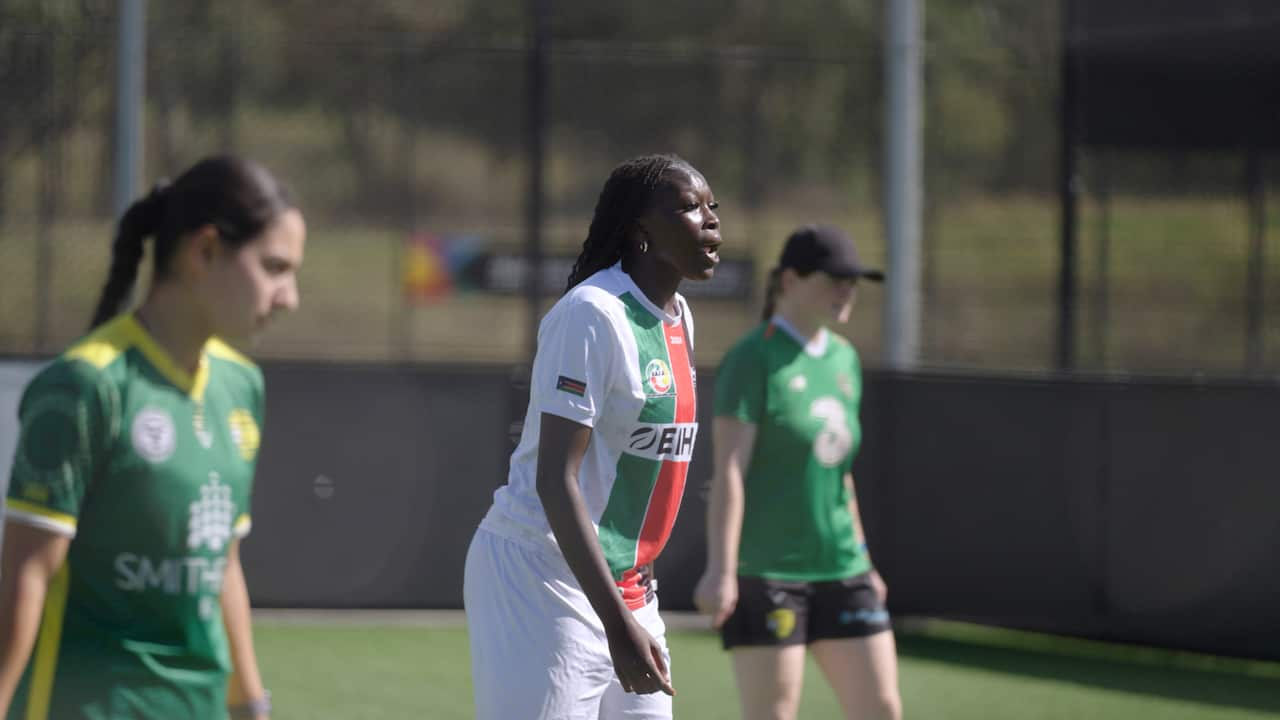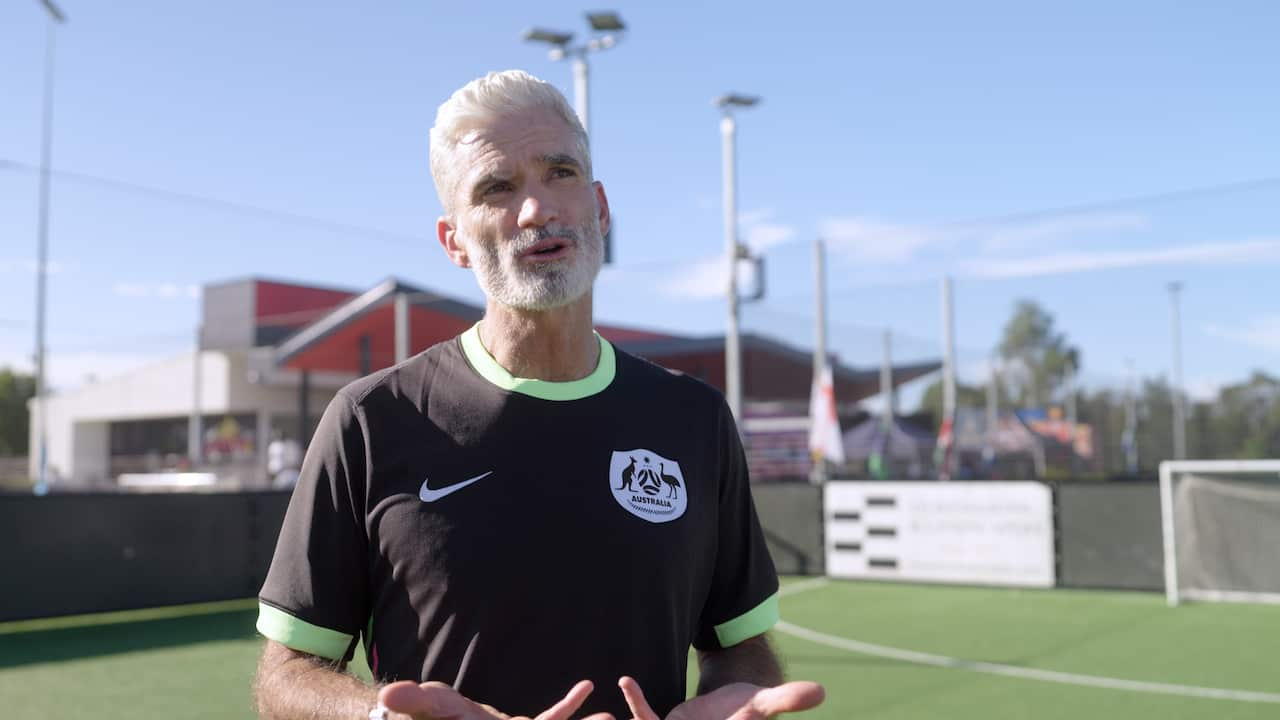Abaker Athum is a construction worker from St Marys, and a diehard football fan.
He was one of the Lost Boys of Sudan, a group of children displaced during the Second Sudanese Civil War. Before coming to Australia, he stayed at the Kakuma Refugee Camp.
There he fell in love with football.
“We get the gloves, we blow them up and get all the bandages around it and we make it as a football,” he said.
“Playing around in a very dusty hot ground sort of thing, bare feet, nothing. It's just nothing clean about it. But you get dirty as much as you want.
"Sometimes that ball will blow up and then we have to do it again, or put all the socks together and put rocks in the sock, and we tied it around . . . We kept chasing it all day.”
Settling in Australia was difficult for Abaker. He missed community and football. In 2020, with friends, he established the African Australian Football Association (AAFA).
The organisation created the African Cup, and the Multicultural Cup a year later.
For the last five years, over 600 players from more than 32 nationalities have competed in the Multicultural Cup across two venues. While being different ages, religions, cultures and fitness levels, they all share a passion for the game.
The tournament is a mock FIFA World Cup, with formal meetings, group stage draws, team captains, tournament jersets, live streamed matches and a festival day to mark the finals. It’s a mammoth volunteer effort, but one that’s built strong cross-cultural friendships.

Over 32 nationalities compete in the Multicultural Cup. Credit: SBS Examines/James Elliott
When we first came to Australia, the only thing we knew was football, or soccer as we call it here.
"And that kind of allowed me to create a lot of friendships, people from various backgrounds and various faith groups as well. And it created a sense of belonging, and sense of identity within my community,” he said.
He said his involvement in the tournament is fuelled by the want to give that opportunity to the next generation.
Football has played a crucial role in Australia’s multicultural history.
Associate Professor Jorge Knijnik, from Western Sydney University, studied how the sport promotes social cohesion in Australia. He told SBS Examines it differs from rugby and Australian Rules because "it didn't come as a product of colonisation".
"Particularly after the migration influx, just after the Second World War, they produced a particular scene of football that was connected to migrant communities,” he said.
Different migrant groups began to form their own clubs, with Greek, Serbian, Croatian and Italian clubs among the first.
“They had their own teams, they had their own culture, their own things they do as a community, their language school, together with football,” A/Prof Knijnik said.
For Craig Foster — ex-Socceroo player, soccer analyst and member of the Australian Multicultural Council — community football is one of the spaces where Australia’s success as a multicultural nation is most obvious.
Football in Australia essentially brings to life the real multicultural nature of the country.
“The other person here standing beside me on my team is just a teammate. They're not a different religion, they're not a different colour, they're just one of us, and the other person is a competitor. It doesn't matter where they're from, what their heritage is. So all the differences go when it comes to football and everyone in Australia comes to play.”

Former Socceroo, soccer analyst and member of the Australian Multicultural Council Craig Foster is a supporter of the event. Credit: SBS Examines/James Elliott
But Abaker doesn’t mind who wins. For him, it’s about giving back.
“Australia has given me opportunity. They welcome me here, they look after me. I owe them a debt where I need to contribute into this country,” he said.
"You appreciate someone who has done something good for you and make sure kids are going to do the same thing and everyone here, that's what we're doing. It's a better place for us.”
